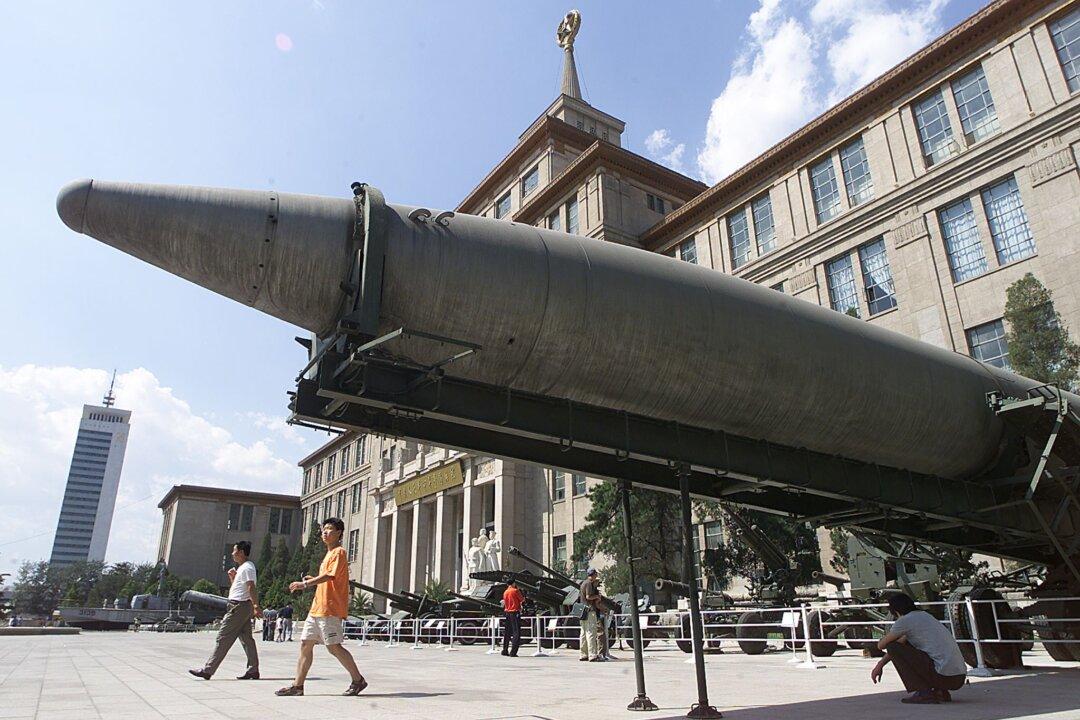The Chinese Communist Party has aggressively built up its military, expanding its arsenal of both conventional and nuclear capabilities. The growth was largely funded by its rival, the United States.
That is one of the arguments made by James Fanell, a retired U.S. Navy captain, and Bradley Thayer, a senior fellow at the Center for Security Policy, a Washington-based think tank, during a recent interview with EpochTV’s “American Though Leaders“ program.





